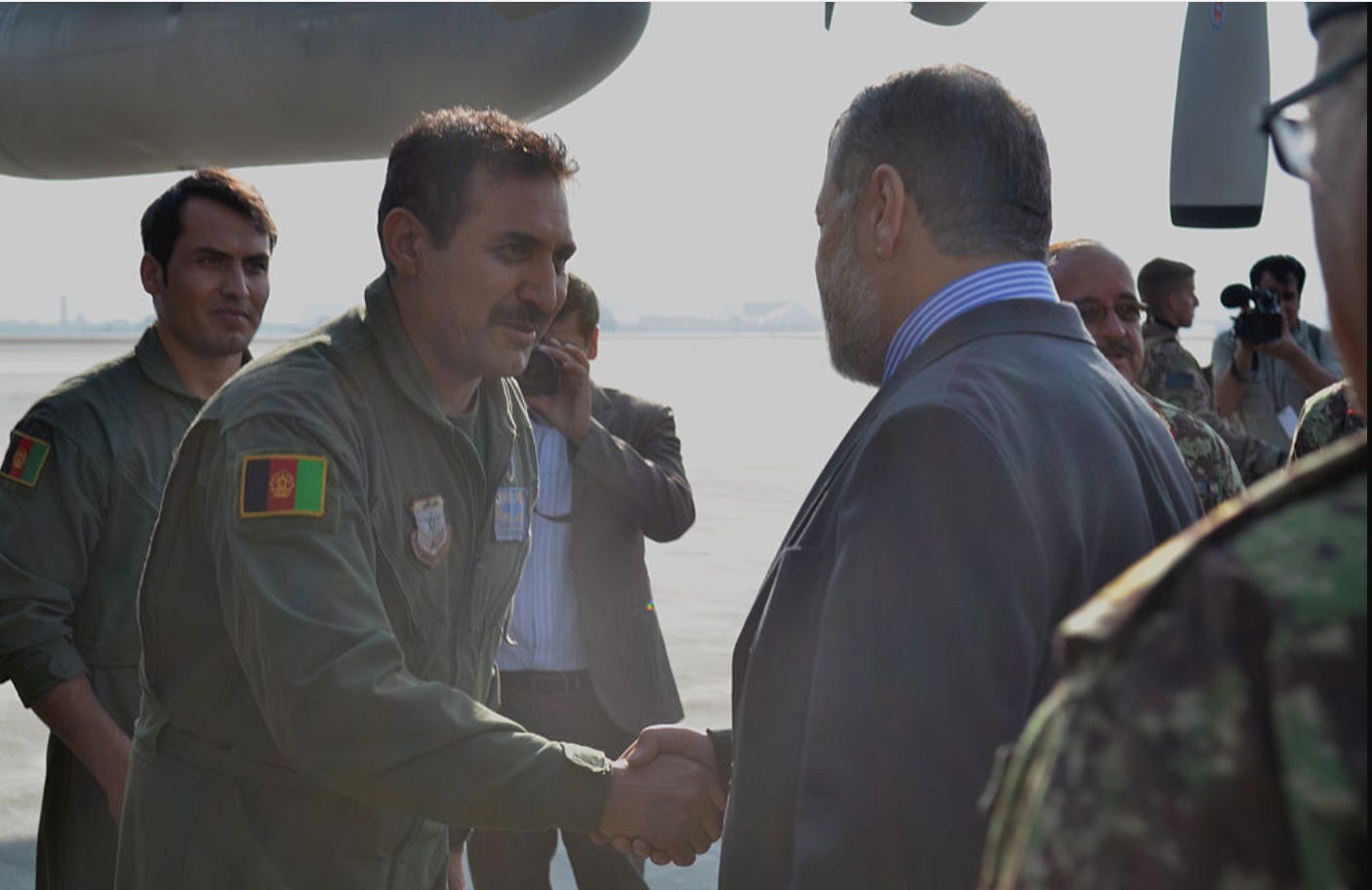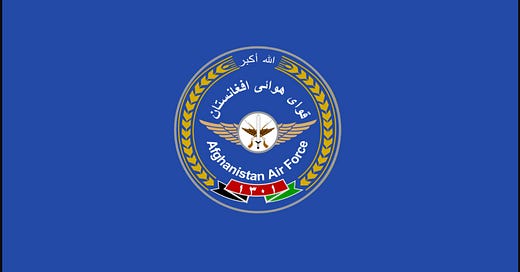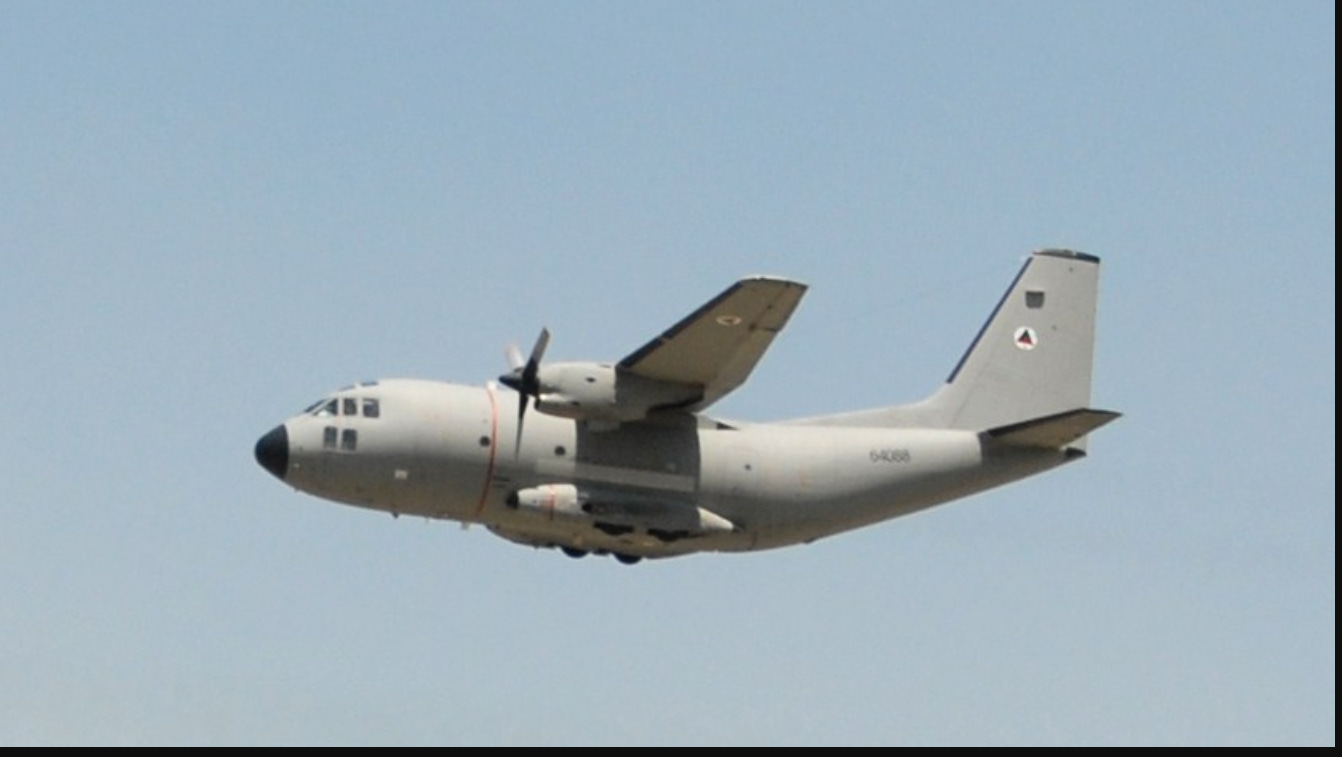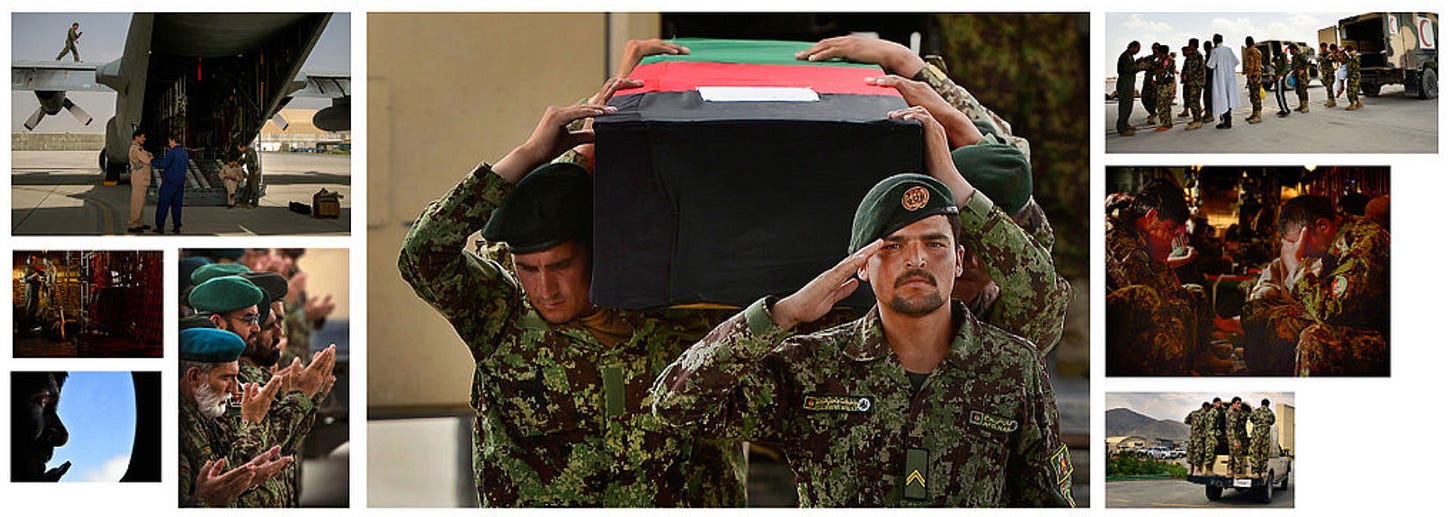(GCV Intro: It’s my honor and privilege to publish my dear friend, Colonel Khial Shinwari, Afghan Air Force (AAF). Colonel Shinwari is both an American and Afghan hero. Full Stop)
The call came in late that evening. The Air Force commander’s voice was urgent, demanding my immediate presence. I didn’t need to ask why. The situation in Kandahar was deteriorating by the hour, and the weight of the war was pressing down on all of us. When I arrived, the commander wasted no time.
“We need to evacuate 1,800 soldiers from Kandahar,” he stated, his tone leaving no room for discussion. “Your crew is the only one left capable of handling this.”
I stood there, my mind racing. The risks were clear. The Taliban had tightened their hold on the city, and the airfield was no longer safe. I voiced my concerns, my tone steady yet firm.
“Sir, the risk is too high. If we land, the Taliban could shoot us down or take the crew hostage. There’s no air support and no evacuation plan if something goes wrong. Kandahar Airfield is abandoned. We’d be on our own. Plus, I don’t have coalition support or any air support.”
The commander’s expression remained unchanged. He leaned forward, his eyes fixed on mine. “Those soldiers will die if we don’t get them out. Your crew has to go. There’s no other option.”
I wanted to argue and explain that sending us in without support was a suicide mission. However, the commander’s resolve was unshakable. After an hour of back-and-forth, he picked up the phone and called Lieutenant General Alizai. He briefed him on my concerns, reiterating the risks I had outlined moments earlier.
When the commander handed me the phone, LTG Alizai’s voice was calm yet assertive. “I won’t take no for an answer,” he said. “This mission must be accomplished. And if it helps, I’ll ensure your crew is compensated.”
"Compensated." The word hung in the air. I thought about my crew—I’m the only one who truly understands the risks I’m about to put them through—and I also considered my family: my 55-day-old son and my 3-year-old daughter. I reflected on the 50,000 Afghanis I had saved, which amounts to $548, hardly enough to buy milk or keep us afloat if Kabul fell. As the mission leader, I weighed my crew's and their families' situations during these critical times since 2001.
Questions swirled in my mind. At that moment, none of the war campaign classes I had attended at Maxwell Air Force Base offered any real help aside from sparking my thoughts.
What if the Taliban takes the city? How long will my savings last? Can I even get my family to safety? If not, how can I help my crew members' families? Could I even provide them with assistance?
Do I have additional support in case anything happens to us? Is there someone who could take care of my family and my crewmembers' families? How can I convince them that it's okay if something happens to us because we are saving thousands of families, even if we lose our own?
I asked the commander for time to think and discuss with my crew. He agreed, but time was running short.

I assembled my team in the briefing room. The atmosphere was thick with tension as I outlined the mission. The risks were evident: no GPS, no air support, no assurance of runway lights, and the constant threat of the Taliban, along with the potential of losing our lives.
The responses were immediate and visceral.
“You’re out of your mind, Shinwari,” one said, shaking his head. “This is suicide.”
I couldn’t blame them; they were right. But I also knew we were out of options. It’s not just about us; it’s about our brothers in arms and our family and their families. It’s about the promises we made before putting on the uniform. I laid my cards on the table, explaining the stakes—not just for the 1,800 soldiers but for our promises to save not only 1,800 soldiers but also 1,800 families. Some crew hesitated, but I could see the flicker of understanding in their eyes. They, too, were grappling with the same fears and uncertainties.
After an extensive and tense discussion, we agreed. We would move forward but under strict conditions:
- If we couldn’t see the runway, we’d abort.
- If there were any shooting, we’d turn back.
- If the runway lights were inoperable, we’d cancel.
- If there were even the slightest maintenance issue, we’d call it off.
- If we see any person among the 1800 that’s suspicious, we will call it off
It was a fragile consensus, but it was enough.
At 11:00 PM, we walked toward the flight line beneath a pitch-black sky. There was no moonlight, no stars—just darkness. Our aircraft was fitted only with an Inertial Navigation System (INS), an outdated technology that was far from precise. The frequent landings and takeoffs in war-torn Afghanistan had made it nearly impossible to achieve the enhanced alignment needed for accuracy.
As we prepared to board, Lieutenant General … joined us. He introduced us to a group of eight soldiers from Unit-03, their faces grim yet determined. Their mission was to secure the tower at Kandahar Airfield and provide us with reports on the airport situation for every flight we were about to undertake.
The group leader, a skinny man weighing no more than 50-55 kilograms, had a commanding presence. I knew him well because he had been a UH-60 pilot before moving to the NSU as a translator and leading a small group. He pulled me aside, his voice low.
“Shinwari, I’ll be honest with you,” he said. “This isn’t going to be easy. The Taliban are everywhere. But we’ll do our part. Just get us there.”
I nodded, but I didn’t reveal the full extent of his warning to the crew. They didn’t need to know how serious the situation was. Not yet.
As we boarded the aircraft, the crew began questioning the Unit-03 leader. His answers were vague, but one thing became clear: our mission wasn’t just to evacuate the 1,800 soldiers. We were also dropping off this group of eight to secure the airfield.
The stakes had just gotten higher.
(This is part one in a multi-part series of essays)
Colonel Khial Shinwari is a proud graduate of the Air War College. He was among the first Afghan Air Force pilots to qualify for the C-130. He also was a plank holder for the Defense Attaché Office-Kabul’s Strength and Wisdom Network.






